Huskies howl as a form of communication and expression of their instincts and emotions.
| Communication with pack | Huskies howl to communicate with their pack and other dogs, signaling their presence and potentially their location. |
|---|---|
| Response to high-pitched sounds | Huskies may howl in response to high-pitched noises like sirens or musical instruments because these sounds can resemble howls. |
| Separation anxiety | Some huskies howl when left alone due to separation anxiety; it is a vocalization expressing stress or discomfort. |
| Expression of illness or pain | A husky might howl to indicate that its in pain or feeling ill, as howling can be a sign of discomfort. |
| Attention-seeking behavior | Howling can be a huskys way of getting attention from their owner or other people when they want interaction or play. |
| Genetic predisposition | Huskies are genetically closer to wolves, and howling is a natural, instinctual trait they have inherited from their wolf ancestors. |
| Boredom or excess energy | A husky may howl because it is bored or has excess energy that needs to be expended; daily exercise requirement: 30-60 minutes. |
| Recognition of familiar sounds | They might howl in recognition of sounds that they associate with their owners return or other significant events. |
Why does my husky howl
Huskies have a rich ancestral heritage that can be traced back to their wolf ancestors. Wolves, much like huskies, use howling as a primary form of communication within their pack.
This ingrained behavior has been passed down through generations and has influenced the husky’s natural tendency to howl. The deep connection to their wolf lineage explains why does my husky howl and highlights the significance of howling as an essential means of expression for these fascinating dogs.
Husky owners can better understand and appreciate their pet’s unique vocal behavior by recognizing the deep-rooted instincts that drive this characteristic..
To explore engaging ways to channel the instinctual habits inherited from their wolf ancestors, dive into a guide tailored for husky owners. Discover a variety of fun and interactive exercises by visiting "How to Play with a Husky: Fun and Engaging Activities!"
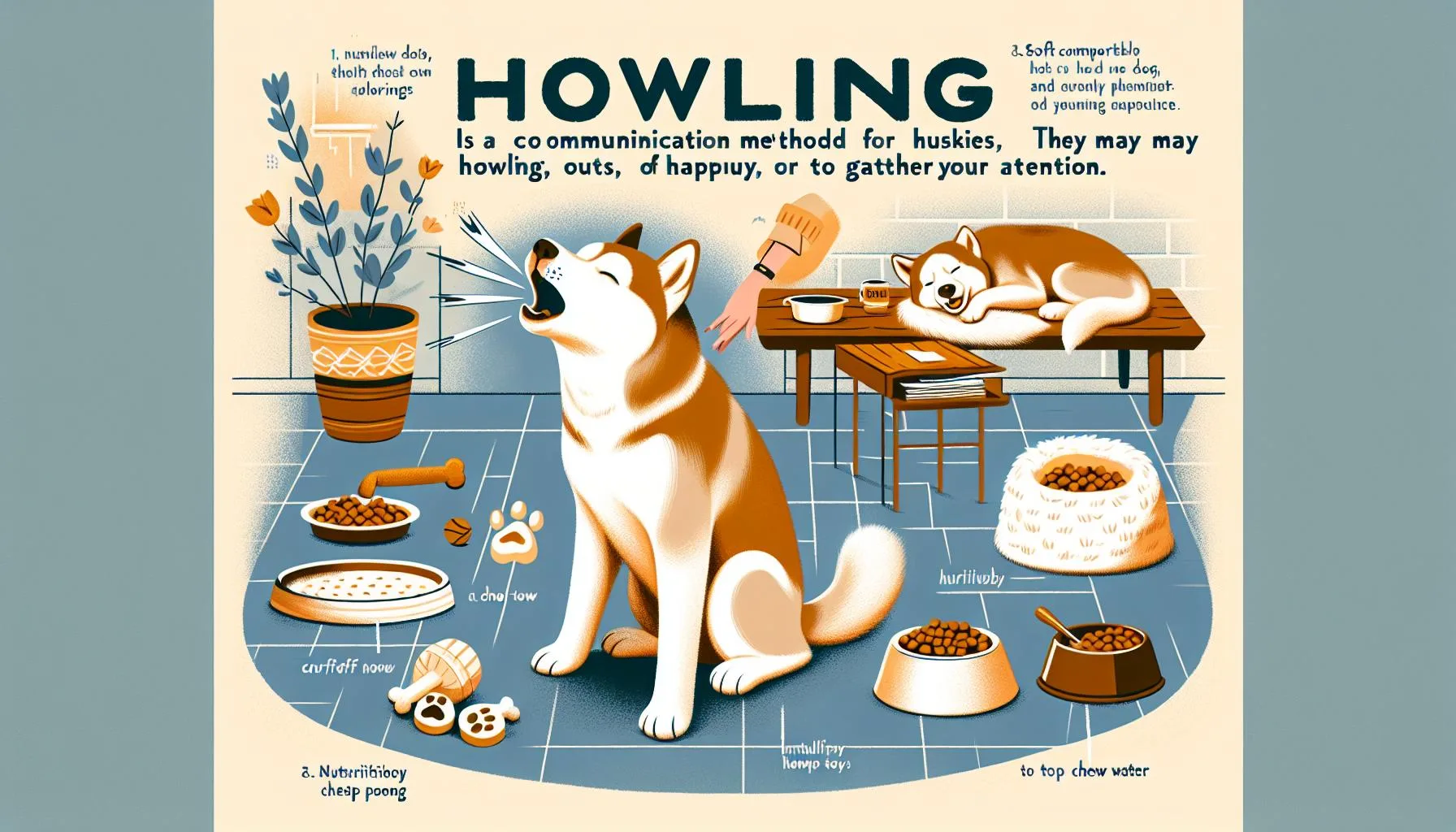
Identifying the Reasons for Howling
Huskies may vocalize through howling for several reasons, and understanding these motivations is crucial for providing appropriate care. One common reason for howling is seeking attention, as huskies are naturally social animals and may use howling as a way to communicate their desire for interaction.
Additionally, huskies may howl to express anxiety or stress, especially when faced with unfamiliar or unsettling situations. Furthermore, environmental sounds can trigger a husky’s instinct to howl, as they may perceive certain noises as a call for a response.
Lastly, huskies might howl as a means of making contact, either with their owners or with other dogs, reflecting their inherent pack mentality. Understanding the multifaceted nature of husky howling is essential for ensuring the well-being of these remarkable animals.
Why does my husky howl
It’s important for husky owners to observe their dog’s behavior and environment to identify the specific triggers for howling. Providing reassurance, engaging in activities to alleviate anxiety, and addressing underlying causes can help mitigate excessive howling and promote a harmonious relationship with these unique and expressive pets.
To delve deeper into the vocal habits of huskies and discover additional insights, explore our comprehensive guide on this intriguing behavior. Unravel the mysteries of your husky's howls by visiting Planet Husky's why does my Husky Howl guide.
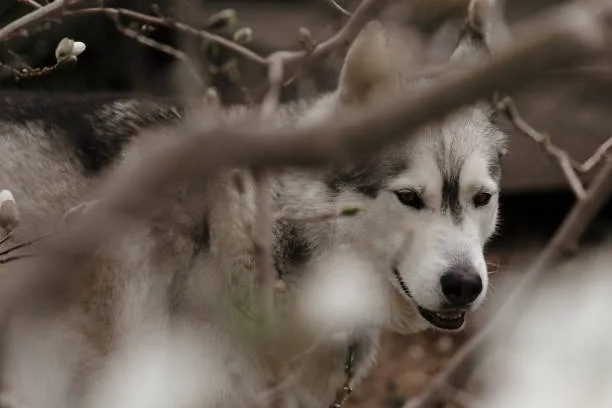
Health-Related Causes of Howling
Why does my husky howl
Why does my husky howl? Health-related causes of howling in huskies should not be overlooked by pet owners. Huskies may howl as a result of pain or discomfort, signaling an underlying health issue that needs attention.
It’s crucial for pet owners to be vigilant and observant of any changes in the husky’s behavior, including excessive or unusual howling, as it could be an indication of an underlying health problem. Apart from pain, howling can also be a response to discomfort caused by health issues such as digestive problems, skin irritations, or allergies.
Therefore, it’s essential for pet owners to monitor their husky’s well-being and seek veterinary care if persistent or concerning howling persists.
Understanding the nuances in your husky's behavior, including variations in howling, is crucial for addressing potential health concerns promptly. For comprehensive insights on nurturing your husky's well-being from a dietary perspective, discover recommended nutrition strategies for young Siberian huskies by reading the guide on proper puppy feeding.
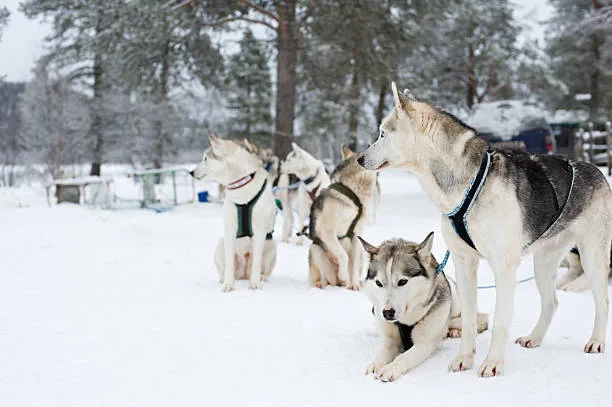
Husky Howling and Pack Behavior
Husky howling is deeply rooted in their pack behavior, a reflection of their wolf ancestry. This instinctual behavior serves to strengthen the bond with their human “pack” and allows them to communicate with other dogs in the area.
It’s a way for them to express their presence and connect with others, whether it’s their owner or fellow canines nearby. Huskies are known for their social nature, and howling is a way for them to engage with their environment and establish their place within their pack, whether human or canine.
This type of communication helps fulfill their need for social interaction and reinforces their sense of belonging within their family unit. Consequently, understanding and acknowledging this aspect of husky behavior is essential for creating a harmonious and enriched living environment for these remarkable dogs.
Ultimately, when asking ‘Why does my husky howl?’, it is vital to recognize that this behavior is an intrinsic part of their pack mentality and social communication, reflecting their need for connection and interaction within their environment.
To understand the full spectrum of a husky's needs beyond their social howls, it's essential to consider their physical requirements as well. Delve deeper into the necessary activity levels for these energetic canines by exploring the exercise guidelines that keep huskies thriving.
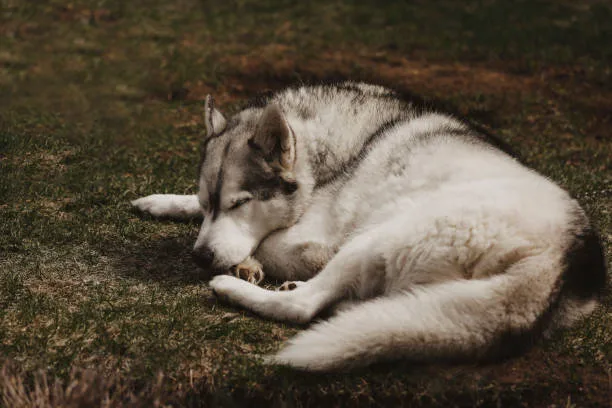
The Impact of Loneliness and Separation Anxiety
Loneliness and separation anxiety can be significant triggers for excessive howling in huskies. These dogs are known for their deep-seated dislike of being left alone, and when they experience separation anxiety, it can lead to prolonged and intense bouts of howling.
Huskies are highly social animals that thrive on human companionship and interaction. When they feel isolated or abandoned, they often express their distress through persistent and loud howling as a way to communicate their emotional turmoil.
This behavior may occur when the husky is left alone for extended periods or when they are not provided with adequate mental and physical stimulation. It’s essential for husky owners to recognize the impact of loneliness and separation anxiety on their pet’s well-being and take proactive measures to address these issues, such as gradually acclimating the husky to alone time and providing interactive toys or activities to alleviate feelings of isolation..
To further understand the resilience and needs of these energetic canines, explore our comprehensive guide on the dietary endurance of huskies. Delve into the details by visiting "How Long Huskies Can Manage Without Food."
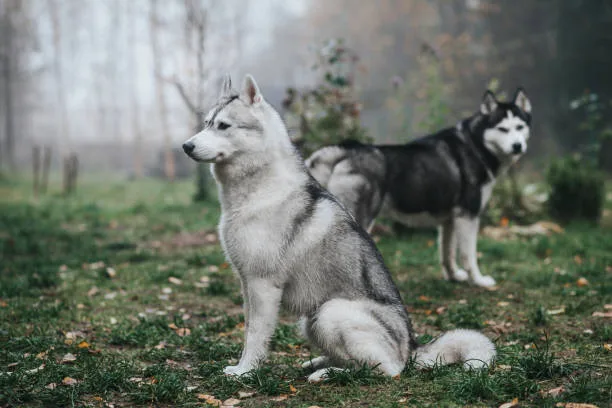
Training Techniques to Reduce Unwanted Howling
Training your husky to reduce unwanted howling behavior requires consistency and patience. Start by positively reinforcing quiet behavior with rewards or treats.
When your husky remains calm and doesn’t howl, offer verbal praise and a treat to reinforce the desired behavior. If your husky starts howling, avoid shouting or scolding, as this can potentially exacerbate the behavior.
Instead, ignore the howling and wait for a moment of silence, then reward with praise and treats. Consistent training with positive reinforcement can help your husky learn that quiet behavior is encouraged, while excessive howling is not.
Patience and consistency are key in effectively training your husky to reduce unwanted howling..
For a comprehensive understanding of your husky's health and well-being beyond behavior training, delve into the intricacies of their reproductive cycle. Discover essential care tips by exploring our detailed article, "Understanding Your Female Husky's Heat Cycle: A Guide to Proper Care."
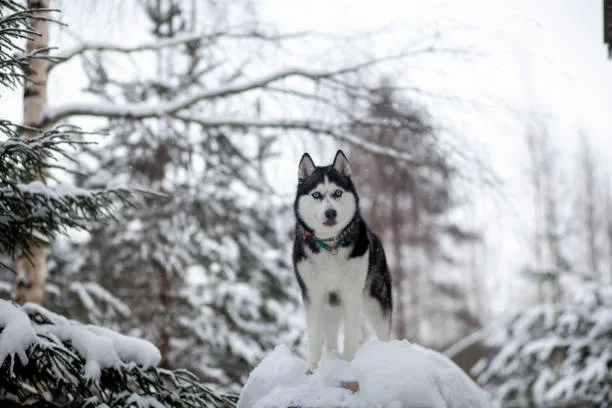
Environmental Enrichment to Deter Howling
To prevent howling in your husky due to boredom or under-stimulation, it’s crucial to provide a stimulating environment that caters to their physical and mental needs. Interactive toys, such as puzzle feeders or treat-dispensing toys, can keep your husky’s mind engaged while providing a fun challenge.
Additionally, incorporating daily exercise routines like brisk walks, jogs, or interactive play sessions not only expends their physical energy but also keeps them mentally stimulated. Creating a designated space for them to explore, like a dog-friendly obstacle course or a safe outdoor area with stimulating scents and textures, can also help deter boredom-related howling.
Furthermore, introducing regular obedience training exercises and mental stimulation games, like hide and seek with toys or treats, can prevent howling by keeping your husky’s mind occupied and satisfied.
On Quora about: Why does my husky howl
By ensuring your husky’s environment is enriched with plenty of engaging and stimulating activities, you can effectively deter boredom or under-stimulation, thus reducing the likelihood of excessive howling.
Discover more about your husky's behavior and mastering positive training techniques. Explore our insightful article on understanding and addressing aggression towards smaller dogs for a well-rounded approach to your pet's well-being.
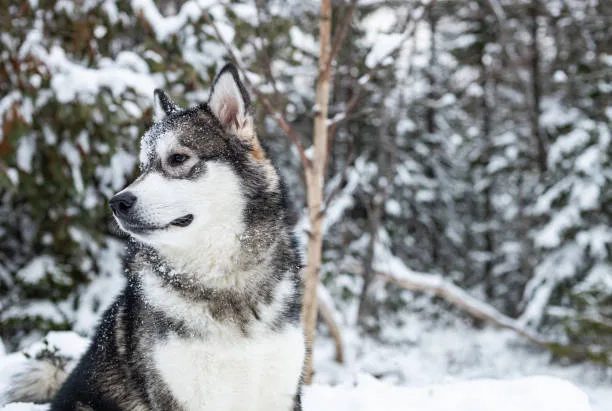
When to Seek Professional Help
American Kennel Club: Why does my husky howl
If your husky’s howling seems excessive or out of the ordinary, it’s crucial to be attentive to potential underlying issues. Keeping a close eye on your husky’s behavior is essential, particularly when the howling becomes persistent and is accompanied by other concerning symptoms.
Excessive howling, especially when it’s coupled with changes in your husky’s eating habits, energy levels, or mobility, could be a sign of an underlying health problem. In such cases, consulting a veterinarian is highly recommended to rule out any medical issues.
Additionally, if your husky’s howling seems to stem from behavioral or anxiety-related issues that you’re having difficulty addressing through training and environmental modifications, seeking the assistance of a professional dog trainer or behaviorist may be beneficial in understanding and resolving the root cause of the howling. Remember, the well-being of your husky is paramount, and seeking professional help when needed reflects responsible and attentive pet ownership.
If persistent or excessive howling is paired with other behavioral shifts, it may signal that your Husky needs more physical activity and mental stimulation. Uncover strategies to engage your pet adequately and promote wellbeing by exploring our comprehensive guide on ensuring your Husky gets the proper exercise regimen.

Communicating With Your Husky: Recognizing Howling Cues
On Medium about: Why does my husky howl
Understanding and recognizing your husky’s specific howling cues is crucial for strengthening the bond and meeting their needs. Huskies have a unique vocal range, and each howl can convey different messages.
By paying attention to the pitch, duration, and frequency of their howls, you can decipher whether they are seeking attention, expressing anxiety, or communicating with other dogs. Additionally, observing their body language when howling can provide valuable context.
This heightened awareness allows you to respond appropriately, addressing their emotional and physical requirements effectively, which ultimately deepens the mutual understanding and connection between you and your husky..
To delve deeper into nurturing your bond with a husky, explore the nuances of training and caring for this unique breed. Discover effective techniques for a German Shepherd Husky mix by reading our article on training and development strategies for your hybrid companion.
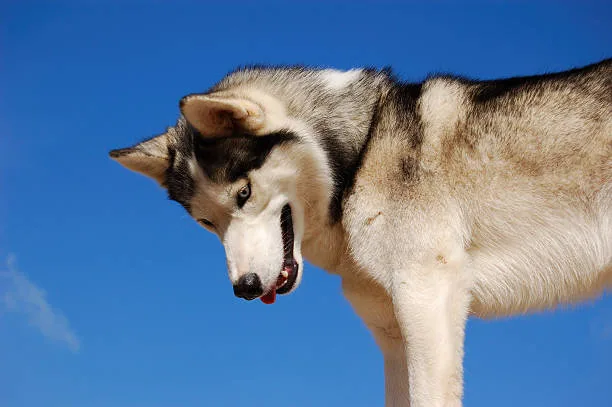
Deciphering Husky Vocal Expressions
Huskies are known for their diverse vocalizations, which go beyond just howling. These vocal expressions can range from gentle whining to playful “talking” sounds that resemble human speech.
Understanding and deciphering these vocalizations are crucial for pet owners to comprehend their husky’s needs and emotional state. For instance, a high-pitched, repetitive bark might indicate that the husky is seeking attention or expressing excitement, while a low, mournful sound could signify anxiety or discomfort.
It’s important to pay close attention to the nuances in their vocal expressions to better cater to their needs and ensure their emotional well-being.
Discover another fascinating aspect of Husky growth and development by delving into the transformation of their fur as they mature. For an in-depth exploration of their shedding patterns and advice on grooming, explore our article on the progression from Husky puppy to adult coat.
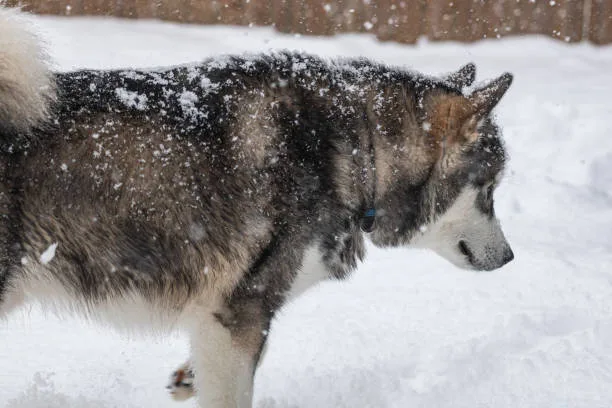
Canine Vocalization and Husky Talk
Huskies are known for their unique vocalizations, including a behavior often referred to as “Husky talking.” This intriguing phenomenon involves Huskies producing sounds that resemble human speech, which sets them apart from many other dog breeds. While it may seem like these dogs are actually talking, it’s important to understand that this vocalization is not actual language but rather a form of communication.
When you hear your husky engaging in this behavior, it’s essential to pay attention to the context and accompanying body language to interpret what message they may be trying to convey. It’s important to respond to these specific vocal patterns by acknowledging your husky and giving them the attention or reassurance they may be seeking.
Additionally, providing positive reinforcement when they exhibit this behavior can encourage further communication and strengthen the bond between you and your husky. Understanding and responding to your husky’s “talking” can enhance the quality of your interactions and deepen the understanding of their needs and emotions.
This type of communication can be both fascinating and endearing, adding to the unique nature of the husky breed..
Understanding your Husky's unique vocal patterns not only strengthens the bond between you and your pet but also aids in addressing other behavioral challenges. Discover effective positive training techniques to curb dominance-related biting in Huskies by exploring our comprehensive guide, "Harnessing Positive Training to Resolve Siberian Husky Dominance and Biting Issues."

Husky Behavioral Challenges and Solutions
Huskies are known for their expressive nature, which can sometimes lead to behavioral challenges such as excessive howling. This behavior can be a result of various factors including separation anxiety, boredom, or the need for attention.
To address excessive howling, it’s essential to focus on effective training methods and make adjustments to the husky’s environment. Training should emphasize positive reinforcement, rewarding desired behaviors, and discouraging inappropriate howling.
Additionally, providing mental and physical stimulation through activities such as regular exercise, interactive toys, and engaging games can help alleviate boredom and reduce howling. Environmental adjustments can involve creating a comfortable and secure space for the husky, as well as minimizing triggers that may cause anxiety or distress.
By understanding the underlying reasons for excessive howling and implementing targeted solutions, husky owners can effectively manage this behavioral challenge and foster a harmonious relationship with their pet..
For a deeper understanding of canine behaviors and expert guidance on managing your Husky's howls, explore the diverse world of dogs with insights from National Geographic. Discover comprehensive strategies and stories to enhance your training approach by delving into the National Geographic Article on Dogs.
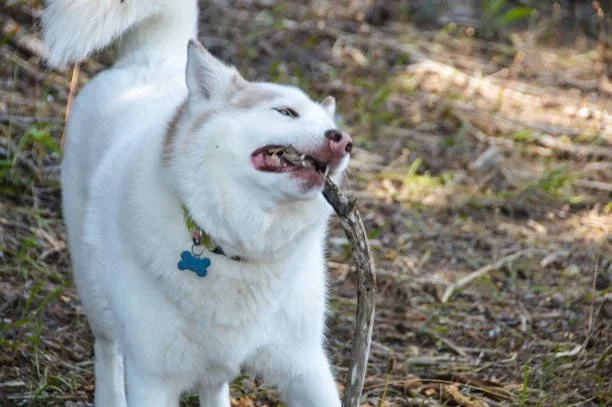
Preventing Howling from Boredom or Anxiety
To prevent howling caused by boredom or anxiety in your husky, it’s essential to provide ample mental and physical stimulation. Huskies are active and intelligent dogs that thrive on regular exercise and mental challenges.
Engaging activities like daily walks, jogging, or hiking can help drain their energy and keep them mentally stimulated. Additionally, interactive toys, puzzle feeders, and obedience training can provide the mental stimulation huskies need to prevent boredom-induced howling.
Creating a structured routine with varied activities can help alleviate anxiety and provide a sense of security for your husky, reducing the likelihood of excessive howling. Additionally, establishing a comfortable and enriching environment at home with toys, agility equipment, and playtime can help keep your husky engaged and satisfied, reducing the risk of howling due to boredom.
Remember, a well-exercised and mentally stimulated husky is less likely to resort to howling as a form of expression..
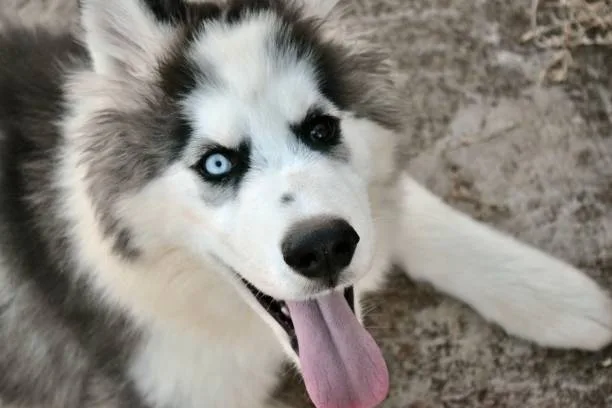
Building the Husky-Owner Relationship Through Sound
Building a strong connection with your Husky involves understanding and responding to their vocal expressions. Huskies are known for their unique vocalizations, including howling, talking, and other sounds, which are essential means of communication.
By paying attention to the various vocal cues, you can deepen your bond with your Husky and fulfill their social and communication requirements. This understanding fosters a harmonious relationship and ensures that your Husky feels heard and valued as part of your family.
Developing a rapport with your Husky through sound involves recognizing the different vocal patterns and interpreting their meanings.
Whether it’s a howl signaling loneliness, a playful bark, or excited yips, each sound conveys specific emotions and needs that your Husky is trying to communicate.
- Responding appropriately to your Husky’s vocal expressions strengthens the trust and connection between you and your pet. When they howl, it’s their way of expressing themselves, and acknowledging this communication reinforces your bond.
- Moreover, actively engaging with your Husky when they are vocal helps to fulfill their social needs and reassures them that their communication is being acknowledged.
This can lead to a more content and balanced pet, which in turn fosters a healthier relationship between you and your Husky.
.
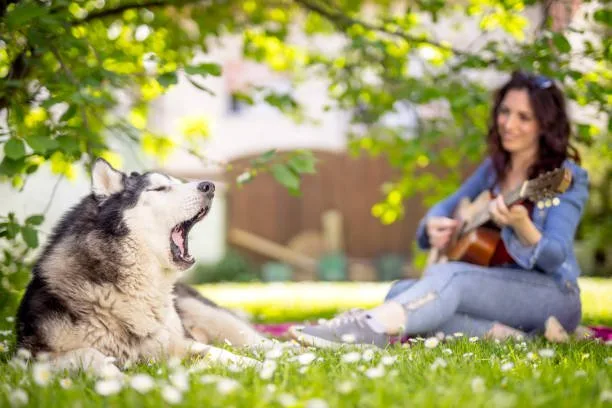
Conclusion: Embracing the Howl as Part of Husky Care
Embracing the howl as part of husky care is crucial in understanding and meeting the needs of these expressive dogs. Huskies have a natural tendency to howl, which is deeply rooted in their ancestry and social behavior.
As responsible owners, it’s essential to recognize that howling is a fundamental part of a husky’s identity. By acknowledging and accepting this form of communication, we can build a stronger bond with our husky and ensure their emotional and social needs are met.
Understanding and responding to their unique ways of expression will ultimately contribute to a fulfilling and enriching relationship between husky and owner. Huskies thrive when their natural behaviors are embraced and accommodated, and by doing so, we can create a harmonious and supportive environment for our beloved pets..

Leave a Reply